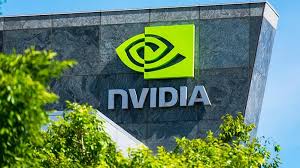ANALYSIS: Behind Nvidia's Record Highs and Executive Stock Sales

SANTA CLARA, Calif. — Nvidia Corp.'s meteoric rise to become one of the world's most valuable companies has been accompanied by a surge in public debate, placing the semiconductor giant at the center of a complex narrative clash. As its stock price continues to test new highs, a series of scheduled stock sales by top executives, including CEO Jensen Huang, has fueled intense scrutiny. This has, in turn, reignited comparisons to past technology booms, pitting arguments of a speculative bubble against claims of a foundational technological shift.
Scrutiny on Executive Share Sales
The most prominent headwind in the public discourse stems from regulatory filings showing that Nvidia insiders have sold over $1 billion worth of company stock in recent months. Reports, amplified by outlets such as the Financial Times and Yahoo Finance, have highlighted these sales, often juxtaposing them against the company's soaring valuation. Critics argue this activity suggests that leadership may be 'cashing out' at a perceived peak, thereby undermining confidence in the stock's future trajectory.
However, a deeper look into the nature of these transactions presents a more nuanced picture, according to securities law experts and market analysts. The vast majority of these sales are conducted under SEC Rule 10b5-1 trading plans. These plans are pre-scheduled arrangements that allow insiders to sell a predetermined number of shares at a predetermined time. They must be established when the executive is not in possession of material non-public information, providing an affirmative defense against accusations of insider trading.
"This is standard-practice corporate governance for executives whose compensation is heavily weighted in equity," stated a senior analyst at a firm specializing in executive compensation. "It is a disciplined, pre-planned approach to portfolio diversification and financial management, not a spontaneous reaction to market conditions." Furthermore, analysts note that the shares sold represent a small fraction of the total holdings of the executives involved. Public filings indicate that CEO Jensen Huang, for instance, still holds tens of millions of Nvidia shares, an amount valued in the tens of billions of dollars, aligning his personal financial interests directly with the company's long-term performance.
Historical Parallels and Market Distinctions
The narrative of executive sales has often been used to bolster a secondary concern: that Nvidia's growth is unsustainable and reminiscent of the dot-com bubble, with network-equipment maker Cisco Systems frequently cited as a historical parallel. The argument posits that, like Cisco during the internet boom, Nvidia's valuation is at risk of a major correction once the initial infrastructure build-out for artificial intelligence slows.
Supporters of Nvidia's current valuation, including analysts at publications like The Motley Fool, actively refute this comparison, pointing to fundamental differences in the underlying technology and market structure. "Comparing Nvidia to Cisco overlooks a critical distinction," a veteran tech strategist explained in a recent research note. "Cisco provided the 'plumbing' for the internet, a crucial but ultimately commoditizable layer. The value was created by the websites and services running on that plumbing. In contrast, Nvidia's GPUs are the 'factories' of the AI era. They are the engines of value creation itself."
This argument is bolstered by Nvidia's financial performance. Unlike many companies during the dot-com era that were valued on speculative potential with little to no profit, Nvidia's valuation is backed by substantial and rapidly growing earnings and free cash flow. The company's dominance in the market for AI training chips exceeds 80%, a position that analysts argue is protected by a deep competitive moat built on its CUDA software ecosystem, a platform that has been developed over more than a decade and has a vast, entrenched user base of developers and researchers.
The 'Sovereign AI' Growth Frontier
Perhaps the most powerful counter-argument to fears of slowing demand is the emergence of what CEO Jensen Huang has termed 'Sovereign AI'. This refers to a growing global trend of nations building their own sovereign AI infrastructure. The rationale is that AI is no longer just a commercial technology but a critical element of national security, economic competitiveness, and cultural preservation. This creates a new, multi-billion-dollar customer category that is distinct from the enterprise and consumer markets.
"A nation's data is a national treasure. They must take ownership of their own national intelligence," Huang stated at a recent industry event, outlining a vision where countries across the globe invest in domestic computing facilities to train AI models on their own data, in their own languages.
This narrative is supported by a growing number of public announcements and industry reports. Nations in the Middle East, Asia, and Europe are reportedly in talks or have already committed billions of dollars to acquire Nvidia's hardware. This emerging demand driver provides a significant, long-term growth vector that analysts believe is not yet fully priced into the market. It suggests that the build-out of AI infrastructure is not a one-time event, but a continuous, global arms race for computational power. This is further reinforced by persistent leaks around Nvidia's next-generation products, such as the rumored RTX 50 'SUPER' series, which reportedly addresses high-end VRAM concerns, indicating the company continues to innovate far ahead of the immense demands of its largest clients.
As the debate continues, analysts and investors remain divided. One perspective views the combination of high valuations and insider stock sales through the lens of historical caution. The other sees these sales as routine financial planning and argues that the fundamental, global demand for generative AI—driven by corporations and now, increasingly, by nations—represents an unprecedented technological shift. The ultimate trajectory of Nvidia's valuation may depend less on historical analogies and more on whether this new era of Sovereign AI creates a demand cycle with no historical precedent.

